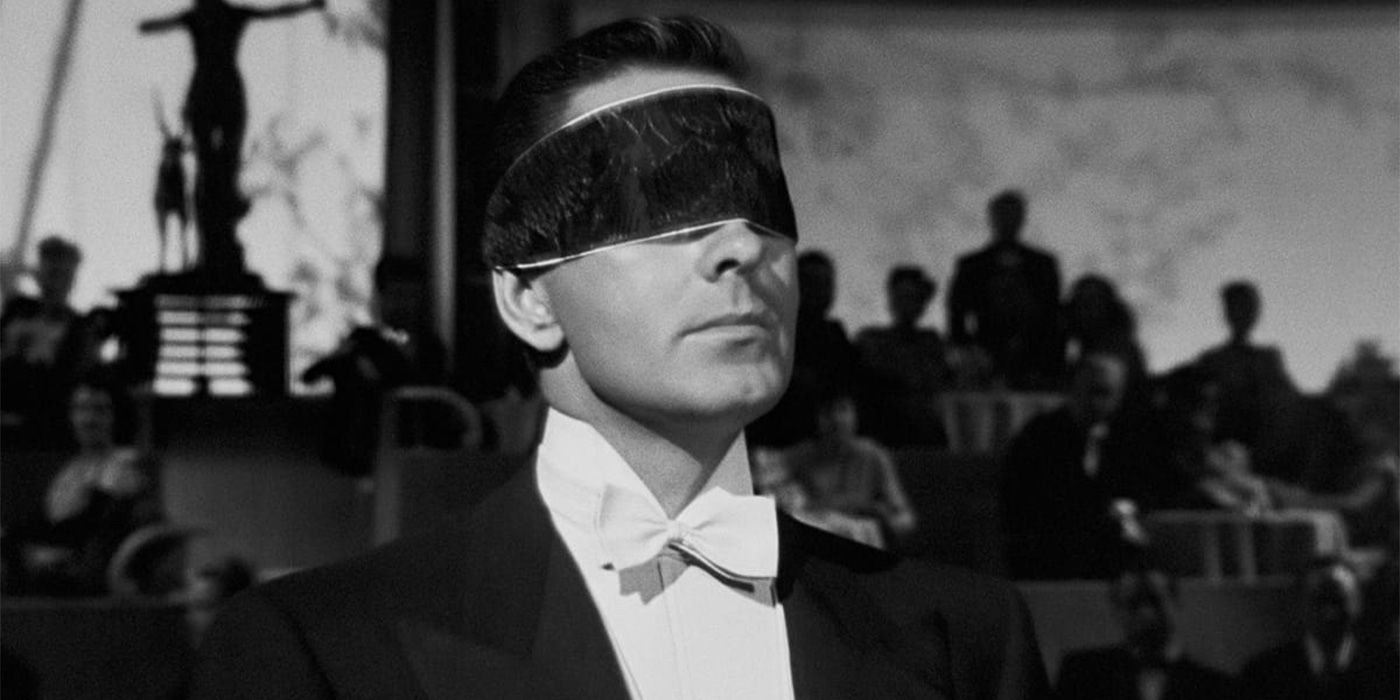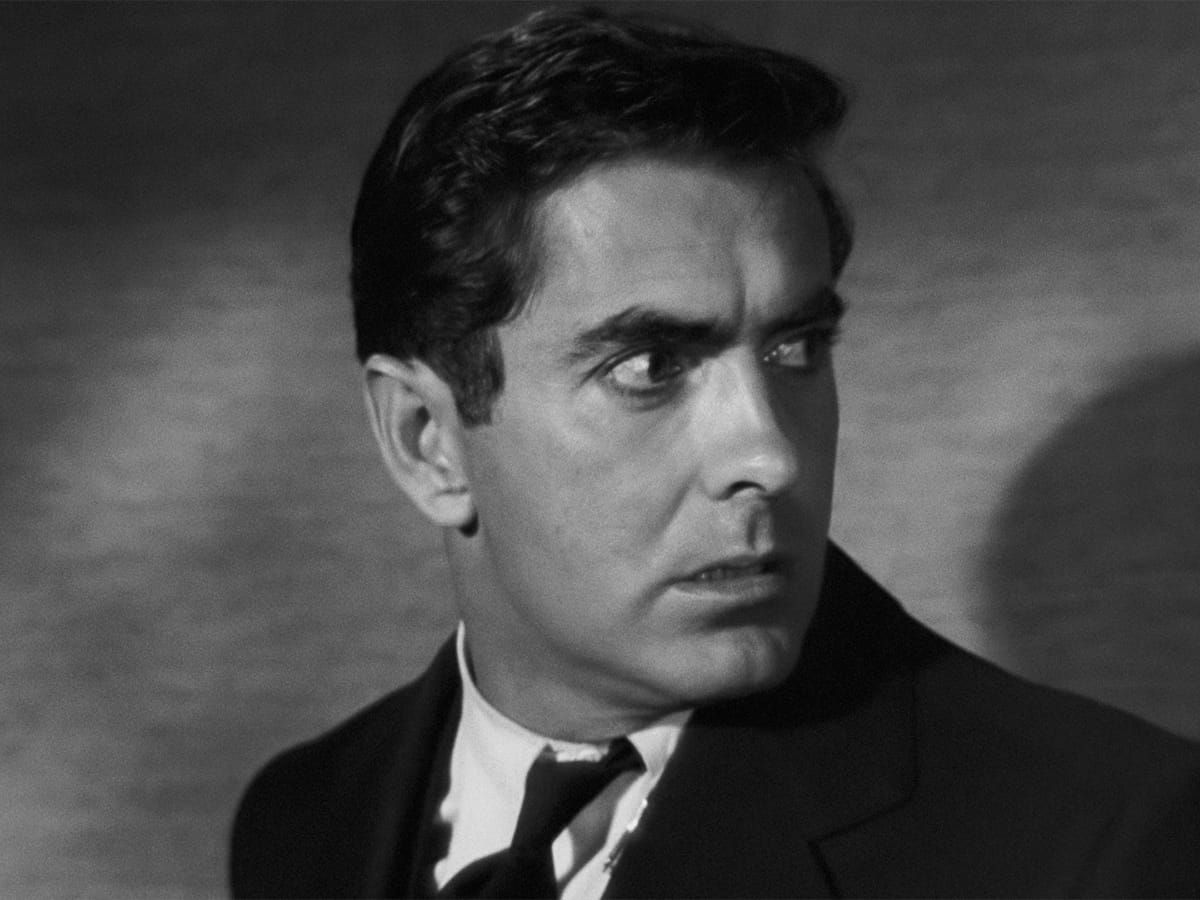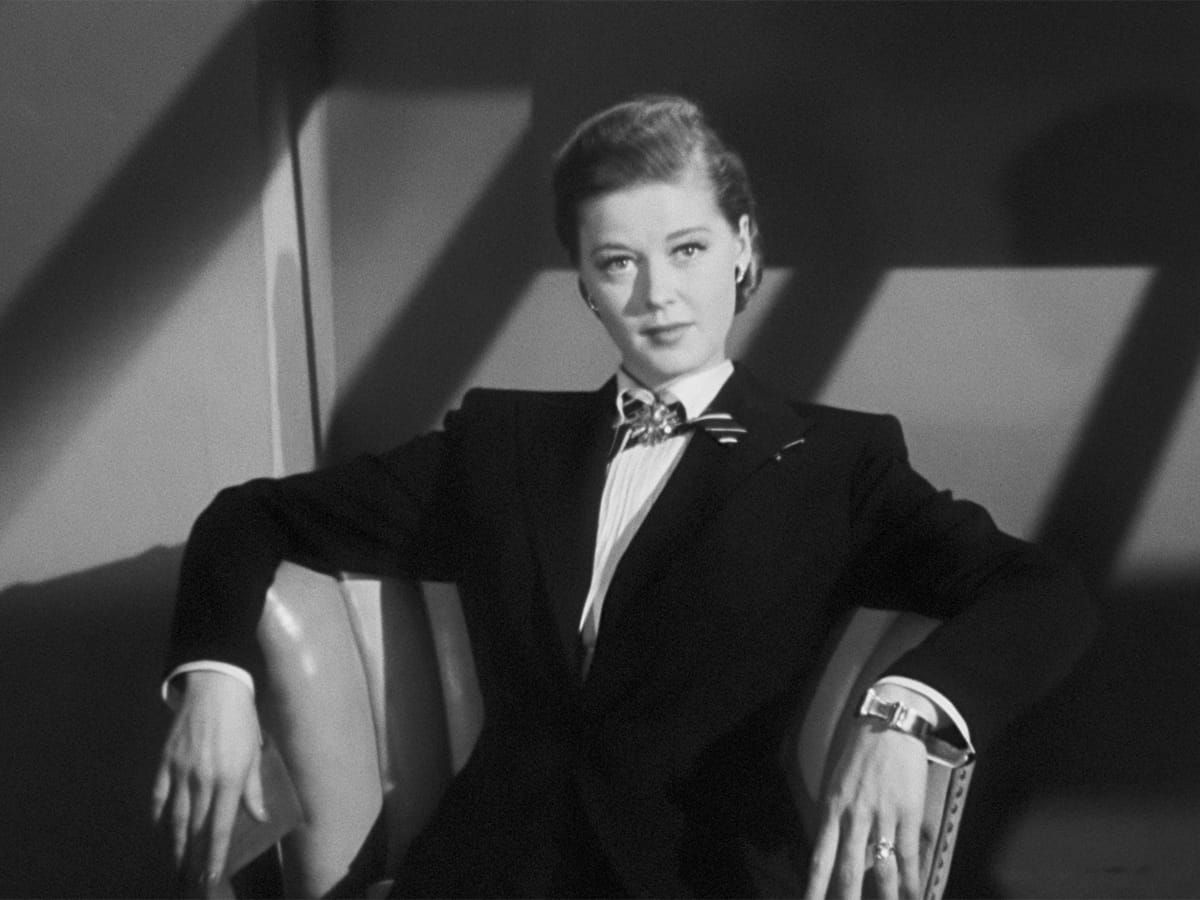We are living in a golden age for grifters. Social media is already well-suited to displaying an image of ourselves that isn’t completely true and using it to capture the attention of others for our own ends. The line between confidence tricks and entertainment is particularly easy to blur, and when everything is deemed entertainment, it’s no problem for a con artist to pick your pocket while telling you what you want to hear. And in a perverse twist, the most successful con artists go back into being fodder for entertainment, as you can see with the new HBO series Generation Hustle or the recent WeWork documentary. Grifting is a thriving industry, and that makes the arrival of 1947’s Nightmare Alley on Criterion all the more potent.
Based on the novel of the same name by William Lindsay Gresham, the story follows Stanton “Stan” Carlisle (Tyrone Power), a carny who’s always looking for the next angle to advance himself. While his fellow carnies seem fairly content at their easygoing life in the carnival, Stan has larger ambitions, and he sees a way to realize them when he learns about a particular trick from his coworker Zeena (Joan Blondell), who used to work the crowd with her now painfully soused partner Pete (Ian Keith). Once Stan learns the trick and sees it as a way to play to wealthier audiences, he teams up with the sweet and innocent Molly (Coleen Gray) to hustle upper crust society at nightclubs where he claims he can read their minds. It’s here that he meets up with psychologist Lilith Ritter (Helen Walker), and the two realize they’re kindred spirits when it comes to the con game.
Perhaps the greatest trick that Nightmare Alley has up its sleeve is casting Power in the role of Stan. Power, who lobbied for the film to get made and use it to prove himself as a serious actor, was a hot commodity for playing swashbuckling heroes. The film wisely always plays to Power’s performance as charming and affable. It only hints at sinister intent, and so we’re on the ride with him seeing him as almost a heroic figure despite his cynical and insidious approach towards the world. For Stan, money is almost secondary to his desire to prove that he’s smarter than everyone else, which is why the film casts Lilith in his path to show us someone who’s not only potentially more dangerous, but also someone who’s more ingratiated with society. While Stan’s grift is embedded in the world of entertainment, Lilith is in the more respectable world of mental health, and yet she secretly records all of her sessions and has no compunction about working with someone like Stan.
Where Nightmare Alley gets really nasty is how it shows that in this world, the winner is the person who can pull off the best con. The world is populated mostly by suckers who want to believe in fairy tales, and that leaves room for people like Stan and Lilith to manipulate others, and yet Stan fails to realize he’s just as susceptible to that weakness except for him it comes down to ego. He’s not looking to speak to the great beyond or any other carny trick. The film even positions Stan as a blasphemer, someone who’s false ability to speak to the dead is an affront towards the almighty. But Stan’s real weakness is needing to know he’s smarter and more capable than everyone else, which is why his downfall is so swift when that illusion shatters.
That downfall also makes Nightmare Alley unique among noirs as Lilith bringing about Stan’s downfall has nothing to do with her sexuality. She’s not a femme fatale, and on the contrary, she’s played as his equal. Her attire is frequently masculine, she’s in a profession that at the time was dominated by men, and most importantly, she understands Stan’s con game from the start. She outplays him and feels no remorse for doing so, and that is such a deadly blow to Stan’s ego that his entire life unravels in a handful of scenes. Rather than an average guy who gives into his dark side like in other noirs, Stan is a snake who has the misfortune of coming across a deadlier predator.
When you look at the vicious world that director Edmund Goulding created here (although one that’s notably softer in some respects when compared to the biting source material), it’s easy to see a reflection of our current age where grift is frequently rewarded. If you tell enough people what they want to hear, then you can go incredibly far, and while that hypocrisy and manipulation has always been part of the American character, it’s now perfectly enmeshed in our super-charged atmosphere of constant distraction and entertainment. Nightmare Alley simply had the wherewithal to put the con artist and explore his psychology rather than position him as some external, malevolent force. Stan started out at the carnival, but we all live at the carnival now.
Watching the new Criterion of Nightmare Alley, I was constantly struck by how timely it was despite feeling very of a piece with post-war noir in its gorgeous cinematography and hard-edged characters. Its themes strike at the core of American delusion and frailty, and there’s something painfully universal in how Stan is brought low when his identity is destroyed even if that identity is a scoundrel. In the world of Nightmare Alley, everyone can be grifted, even the grifters.



